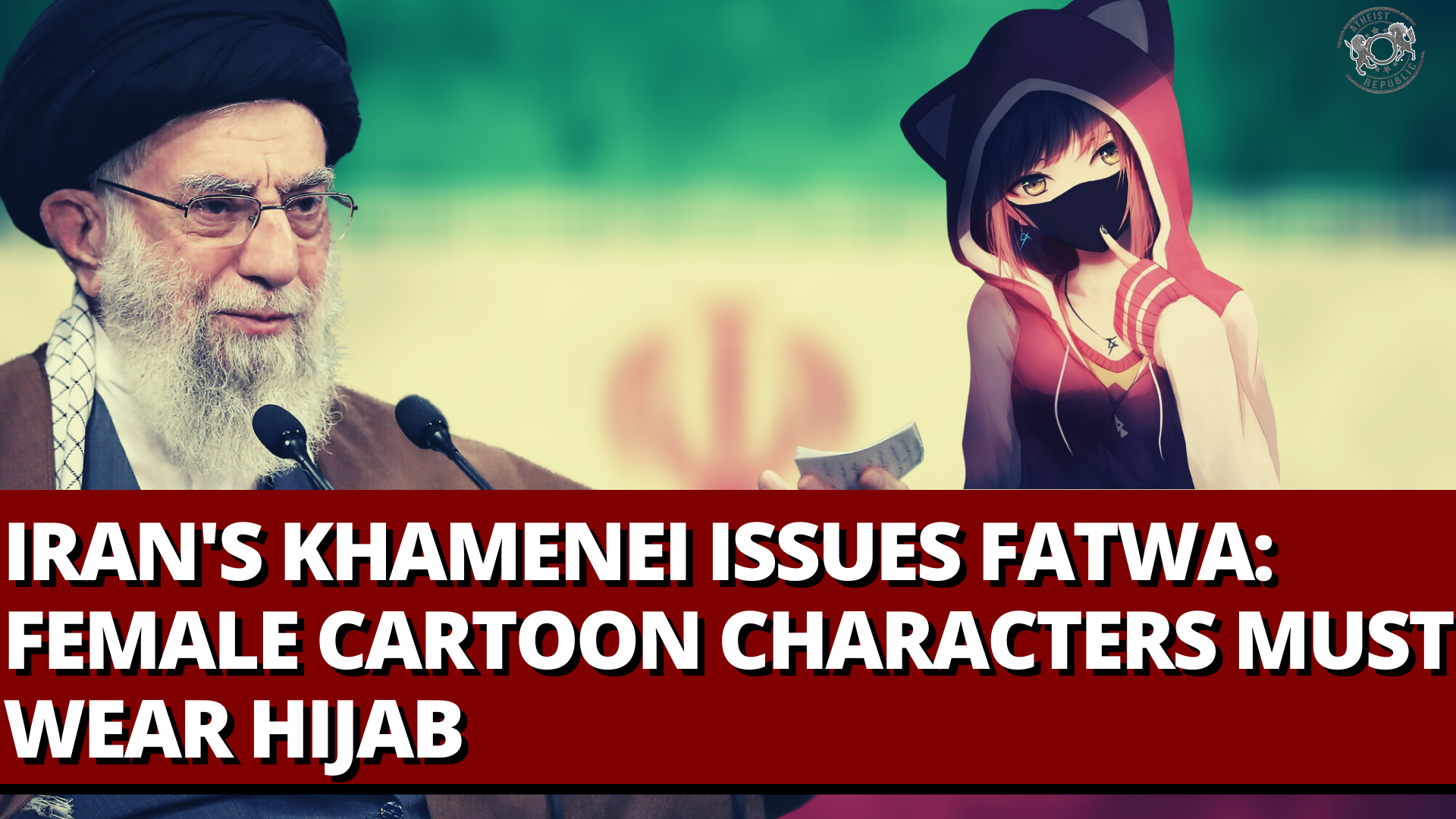
While Iran’s Supreme Leader, Ayatollah Ali Khamenei, held a virtual forum on Telegram, a messaging platform, and someone posed a question for him, the Al-Arabiya news outlet reports. Since Iranian women were mandated to wear hijabs after the 1979 Islamic revolution, Khamenei was asked if “characters in animated films” should likewise be required to wear the hijab.
Satire: Iranian supreme leader Khamenei's fatwa today on cartoon characters' obligation to be covered up
Before fatwa/after fatwa
by @RadicalFarsi pic.twitter.com/vqZYPxqUiF— mina bai (@bai_mina) February 20, 2021
Khamenei’s answer was quoted as, “Although wearing hijab in such a hypothetical situation is not required per se, observing hijab in animation is required due to the consequences of not wearing a hijab,” according to the IranWire report.
Note that the Supreme Leader’s reply is very confusing. The first half of his answer is entirely contradictory to the other half of the sentence.
Little Mermaid before and after Khamenei's Fatwa
by @RadicalFarsi pic.twitter.com/yCjjkmsF1s— Sheina (@Sheina__) February 21, 2021
The New Arab stated that it is “unclear” how Khamenei’s order will be enforced, but noted, “Tehran has imposed strict censorship laws on the country’s film agency.” Animations or cartoons depicting female characters not properly covered may be banned from theaters.
Some clergymen oppose playing foreign films or series where women appear without a hijab.
They believe that will only encourage women to throw away their head coverings. But, not all religious leaders think the hijab should be mandatory in animations.
According to Tasnim news agency, Ayatollah Ali Khamenei issued a fatwa (religious order) to oblige female animated and cartoon characters to wear hijabs. As noted by the Jerusalem Post, those orders do not carry much authority under Iran’s legal judicature. Even so, laws regarding the hijab are not in writing. But since the 1979 Islamic Revolution handling agencies and vigilantes eagerly use violence to force women to obey.
Iranian women who do not comply with covering their hair and wearing appropriate attire are publicly reprimanded, arrested, or fined. Not to mention how severely they are harassed and targeted by the "morality police," also called the "Gasht-e Ershad."
According to the IRNA news agency, a young woman was arrested last October in Iran for “insulting the Islamic hijab” after a video appeared to exhibit her cycling without her veil.
Iranian women of all ages persist with protesting the hijab mandates with intensifying boldness.
